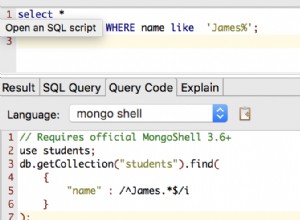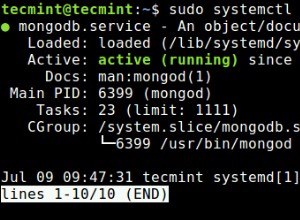Bene, come dicono i documenti contorti:
I differiti non fanno in modo che il codice non blocchi magicamente
Ogni volta che utilizzi un codice di blocco, ad esempio sleep , devi rinviarlo a un nuovo thread.
#!/usr/bin/env python
from twisted.internet import reactor,defer, threads
from twisted.internet.task import LoopingCall
import time
def main_loop():
print 'doing stuff in main loop.. do not block me!'
def aBlockingRedisCall(x):
if x<5: #all connections are busy, try later
print '%s is less than 5, get a redis client later' % x
x+=1
d = defer.Deferred()
d.addCallback(aBlockingRedisCall)
reactor.callLater(1.0,d.callback,x)
return d
else:
print 'got a redis client; doing lookup.. this may take a while'
def getstuff( x ):
time.sleep(3)
return "stuff is %s" % x
# getstuff is blocking, so you need to push it to a new thread
d = threads.deferToThread(getstuff, x)
d.addCallback(gotFinalResult)
return d
def gotFinalResult(x):
return 'final result is %s' % x
def result(res):
print res
def aBlockingMethod():
print 'going to sleep...'
time.sleep(10)
print 'woke up'
def main():
lc = LoopingCall(main_loop)
lc.start(2)
d = defer.Deferred()
d.addCallback(aBlockingRedisCall)
d.addCallback(result)
reactor.callInThread(d.callback, 1)
reactor.run()
if __name__=='__main__':
main()
Nel caso in cui l'API redis non sia molto complessa, potrebbe essere più naturale riscriverla utilizzando twisted.web, invece di chiamare semplicemente l'API di blocco in molti thread.




